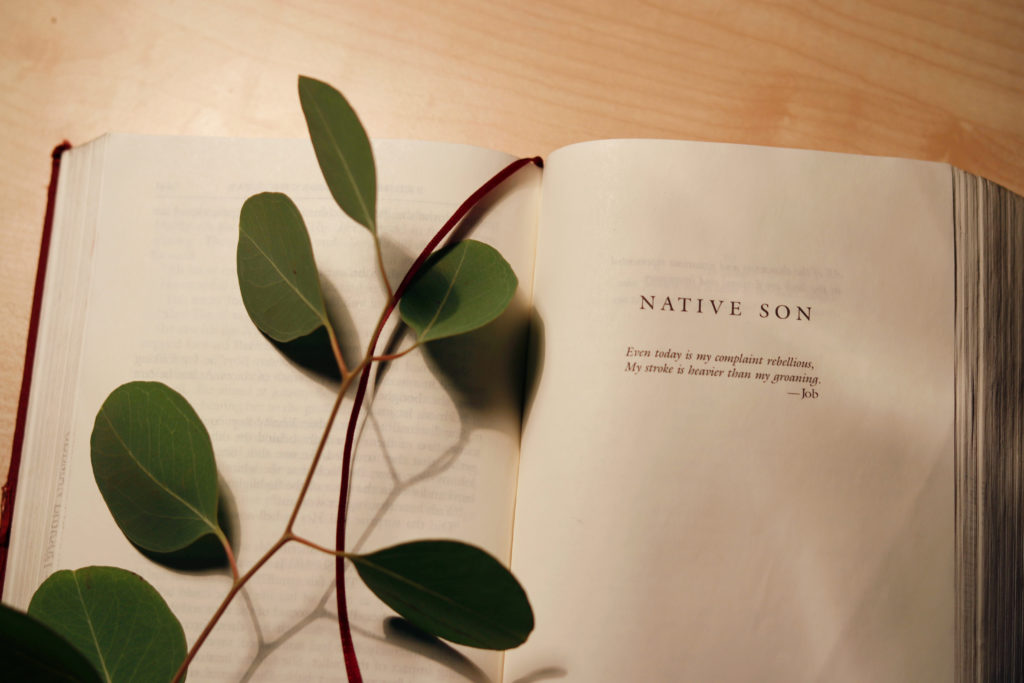From author and filmmaker Zora Neale Hurston’s vivacious prose to writer and journalist Ta-Nehisi Coates’s incisive observations, there are dozens of black writers who have made their mark on literature.
They have poeticized the black experience, using topics like slavery and segregation to push for racial justice. Here are a few noteworthy works by black authors deserving of examination and celebration.
‘Native Son’ by Richard Wright
Published in 1940, Wright’s magnum opus discusses the demise of Bigger Thomas, a 20-year-old African American male who lives in the slums of South Side Chicago. As the novel progresses, the reader learns how Bigger is driven to self-destruction amid the racism and oppression he faces.
Wright portrays the protagonist as a product of his environment, reflecting the despair that black individuals – including the author himself – often felt in a prejudiced society. The narrative is a cautionary tale that signifies how American racism can devastate both the oppressed and the oppressor.
‘The Warmth of Other Suns’ by Isabel Wilkerson
Wilkerson, a Pulitzer Prize-winning journalist, analyzes African Americans abandoning the South for the promise of Northern and Western regions in the United States – a phenomenon now known as the Great Migration – in this remarkable study published in 2010. The work is based on Wright’s poem, “The Warmth of Other Suns,” which follows the story of three migrants: Ida Mae Brandon Gladney, George Swanson Starling and Robert Joseph Pershing Foster.
The author covers the three people through complex storylines, allowing the reader to revere Ida’s free-spirited optimism, sympathize with George’s shattering collegiate dreams and gape at Robert’s aspirations. Wilkerson illustrates several different black stories and brings out both tragedy and triumph in this read.
‘Well-Read Black Girl’ by Glory Edim
A reader should never judge a book by its cover, but “Well-Read Black Girl” is enchanting inside and out. The book’s eye-catching cover – a blend of peach and purple surrounding an illustration of a female reader – makes Edim’s anthology impossible to miss. The interior is equally as engaging, introducing the audience to a collection of essays from the black women writers Lynn Nottage, Jesmyn Ward and Gabourey Sidibe. “Well-Read Black Girl” reveals the value of black women seeing themselves in literature and recognizing that their experiences deserve a permanent place on the page.
‘The Fire Next Time’ by James Baldwin
Notorious for his critical rhetoric, Baldwin often inveighed against the state of race relations in the U.S. In the 1962 book “The Fire Next Time,” he writes about the need for racial integration and peaceful coexistence between black and white races.
The opening letter of the book, addressed to Baldwin’s nephew, sets the tone for the rest of the book, asserting that love and acceptance are the only solutions to black oppression. The essayist alludes to the biblical story of Noah to argue that without racial reconciliation, America is vulnerable to similar fiery devastation.
‘The Autobiography of Malcolm X’ by Malcolm X and Alex Haley
Before the Spike Lee-directed film adaptation, there was the classic book – published in 1965 – detailing the civil rights activist’s momentous life. The book begins with Malcolm’s impoverished upbringing and concludes with his assassination in 1965. The advocate-author, alongside Haley, chronicles his convictions and contributions to black national thought. The autobiography is focused on Malcolm’s perspective, highlighting experiences of challenge and change that can apply to all people.






